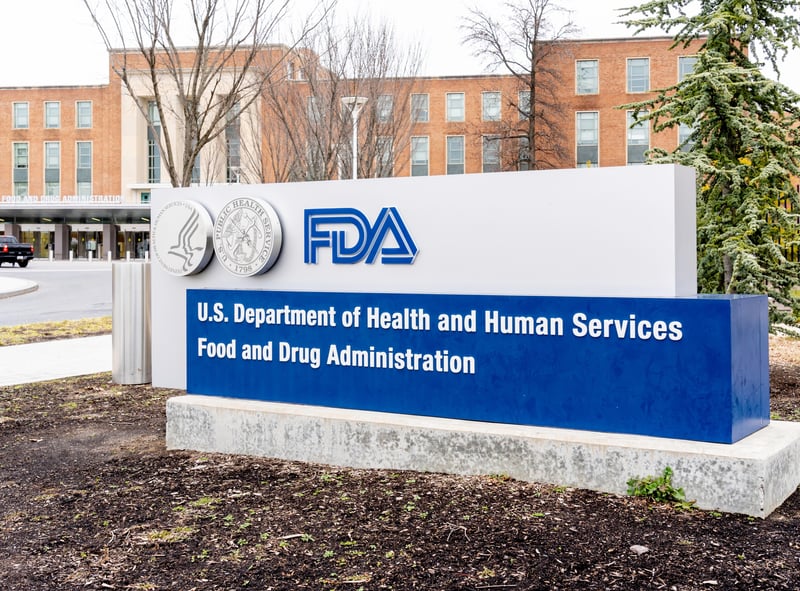Get Healthy!

- Ernie Mundell
- Posted January 31, 2023
After Baby Formula Scandal, FDA Announces New Unit Focused on Food Safety
Stung by recent food safety scandals -- most notably last year's infant formula shortage, the U.S. Food and Drug Administration announced Tuesday that it is creating a new unit devoted to food safety.
The newly dubbed Human Foods Program will wield wide-ranging powers.
"We're proposing the creation of a unified, newly envisioned organization, called the Human Foods Program, that elevates key focus areas, removes redundancies and consolidates activities under a single leader, a deputy commissioner for human foods," FDA Commissioner Dr. Robert Califf said during a media briefing announcing the change.
The deputy commissioner "will have clear decision-making authority and oversight of priorities to ensure a safe and nutritious U.S. food supply,"Califf added.
Not only that, the new program will "elevate the importance of nutrition, given declining life expectancy in the U.S. due in large part to chronic diseases with a basis in nutrition,"he noted.
The sweeping move comes after a scathing report in early December from the Reagan-Udall Foundation found that the FDA's food program is in a state of "constant turmoil" and requires stronger leadership. That report was commissioned by Califf once the agency conducted its own review after facing serious criticism for its handling of the infant formula shortage. That shortage, which dragged on for months, was prompted in part by a recall of potentially contaminated infant formula at Abbott Labs' Michigan-based infant formula production facility.
One of the Reagan-Udall panel's big recommendations was to create a separate food agency with wide-ranging powers within the U.S. Department of Health and Human Services (HHS). The new Human Foods Program should function in that way, assuming under one umbrella the functions of some existing programs within HHS -- the Center for Food Safety and Applied Nutrition (CFSAN), the Office of Food Policy and Response (OFPR), as well as certain functions of the Office of Regulatory Affairs (ORA), the FDA's field-based operations unit.
ORA itself is poised for an overhaul: According to the FDA, ORA will sharpen its focus on its "core mission" -- food inspections, lab testing, imports oversight and investigations. The goal is to spot threats to public health in the food supply early, and prevent outbreaks before they start.
Besides improving the safety of the foods Americans consume, the FDA also plans to keep consumers better informed about the nutrition of everyday food products with the creation of a new Center for Excellence in Nutrition.
The agency will also create an Office of Critical Foods within this center. The entire restructuring underway at the FDA is also meant to foster and reinforce cooperation between the FDA and food safety organizations within various states. A new Office of Integrated Food Safety System Partnerships will help direct that effort, the FDA said.
That will promote "partnerships that are essential to regulate the over 600,000 individual entities involved in our complex food system and embrace innovative food and agricultural technologies that will allow us to supply the nation and the globe with ample, safe and nutritious food in the decades ahead,"Califf noted.
Finally, to help keep the agency on an evidence-based path to better food safety, the FDA plans to appoint experts to its new Human Foods Advisory Committee. Their advice to the agency should help guide the activities of the Human Foods Program going forward.
Some food safety advocates were pleased with the reorganization.
""I think it does a good job of identifying the essential problems and addressing them head-on,"Dr. Peter Lurie told the Associated Press. He heads the Center for Science in the Public Interest, which focuses on consumer nutrition, food safety and health.
But Mike Taylor, who once served as FDA deputy commissioner for foods and veterinary medicine, said the new deputy commissioner doesn't appear to have full authority over the office responsible for inspecting company plants, laboratory testing, imports and investigations.
"If that's the case, the human foods program at the FDA will remain fragmented and the deputy commissioner will not be empowered to make the change that is necessary,"Taylor told the AP.
More information
Find out more about food safety at the U.S. Centers for Disease Control and Prevention.
SOURCES: Media briefing with: Robert Califf, MD, FDA Commissioner, Jan. 31, 2023; U.S. Food and Drug Administration, news release, Jan. 31, 2023; Associated Press







